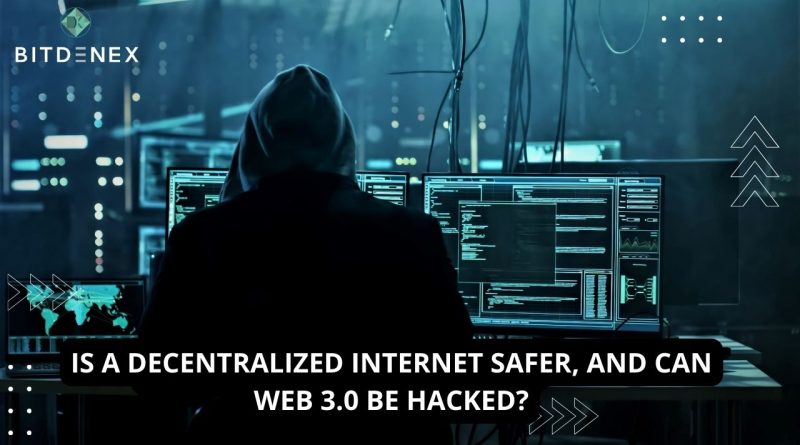IS A DECENTRALIZED INTERNET SAFER, AND CAN WEB 3.0 BE HACKED?
When Web3 was created, it posed a disruption to the current state of the internet powered by blockchain technology. However, as a nascent technology, Web3’s real capabilities and role in our daily lives are obscured by a fog of assumptions.
A complete transition to Web3 would require scrutiny across several factors when considering the promise of a decentralized internet based on public blockchains. When tools and applications are hosted over blockchains in a Web3-powered world, security is one of the most crucial features.
The vulnerabilities of smart contracts
A blockchain hosting Web3 applications remains impenetrable from attackers, but hackers target the project’s smart contracts for vulnerabilities. According to a recent study, approximately $1.6 billion in cryptocurrencies have been stolen from decentralized finance (Defi) platforms so far in 2022.
Defi is a subset of the Web3 spectrum, but it reflects the ecosystem’s most significant vulnerability. Therefore, Web3 entrepreneurs must refocus their marketing budget on system development.
A vulnerability that allows hackers to drain vast amounts of assets results in impermanent losses for investors and may cause an indirect collapse of related ecosystems.
Threats from insiders
Besides external hacks, bad actors within the system may defraud the project and its investors. To prevent internal attacks, fail-safe mechanisms must restrict employee access.
On Aug. 14, trading and liquidity automated market maker Velodrome Finance recovered $350,000 from one of its team members, Gabagool. drained off one of Velodrome’s high-worth wallets for $350,000.
Use this link to sign up and start trading with 0% trading fees at Bitdenex Exchange

